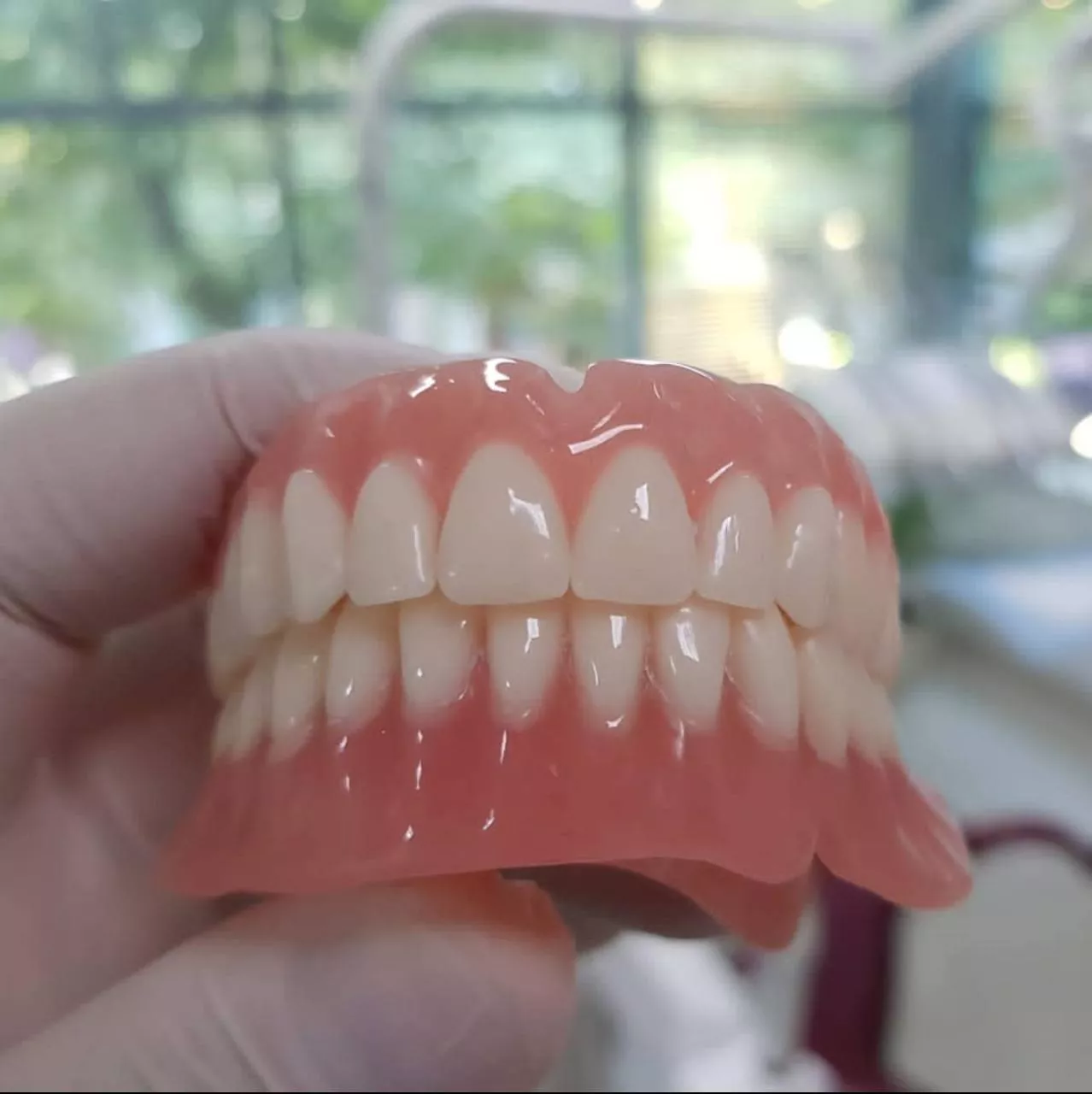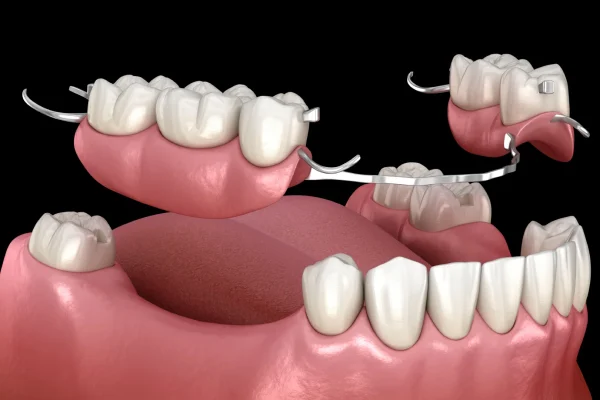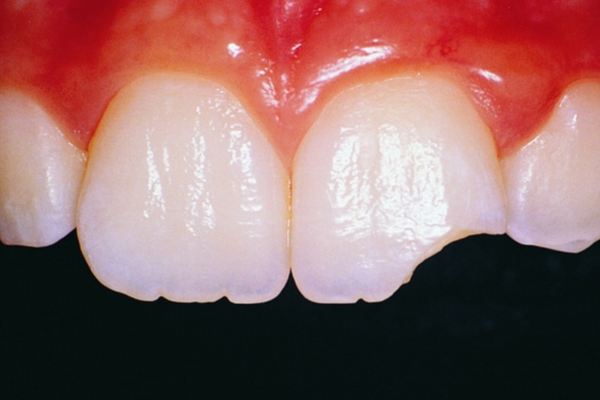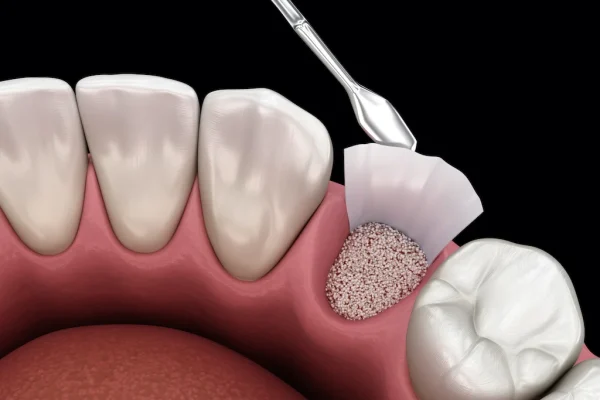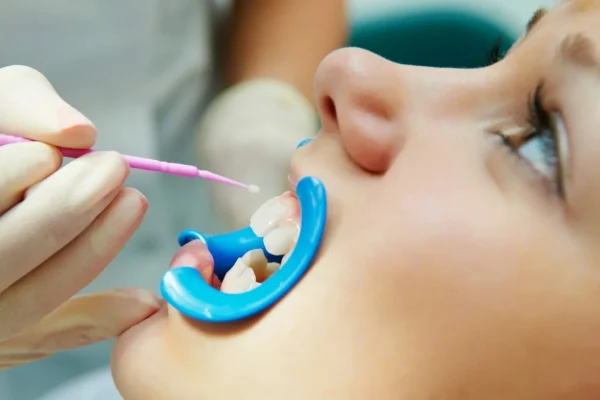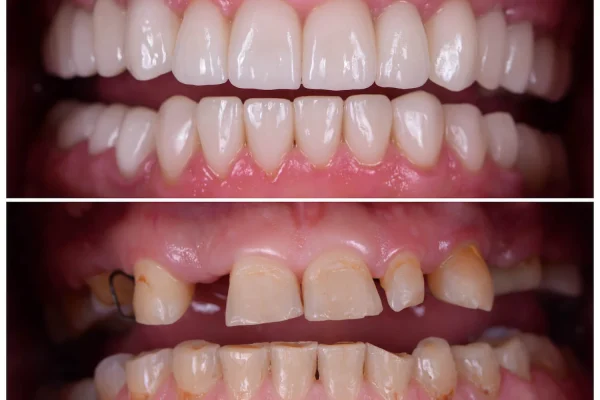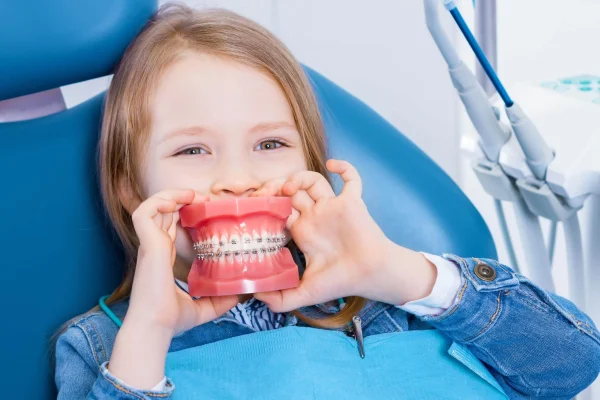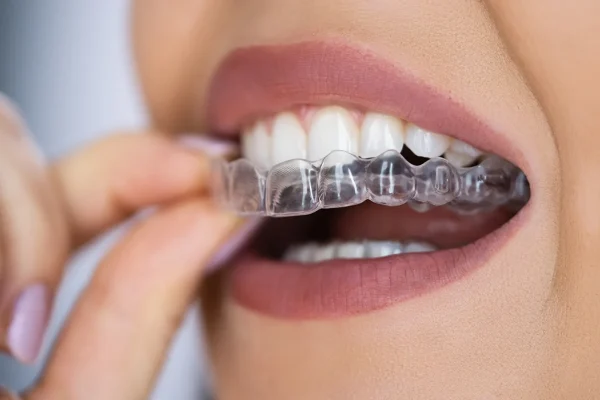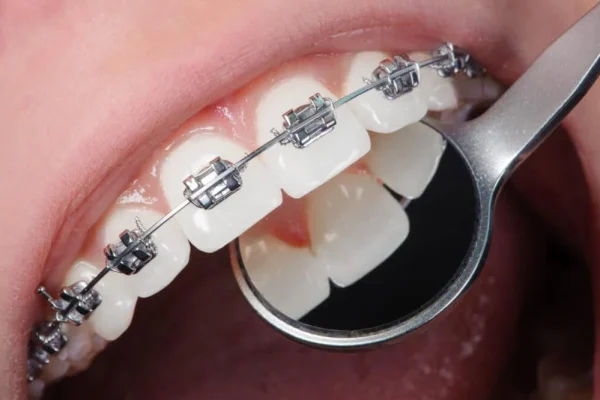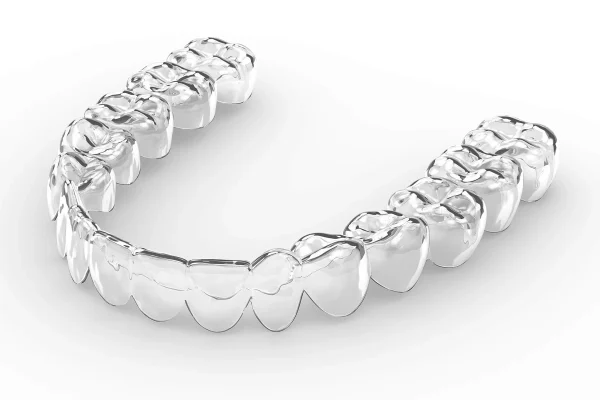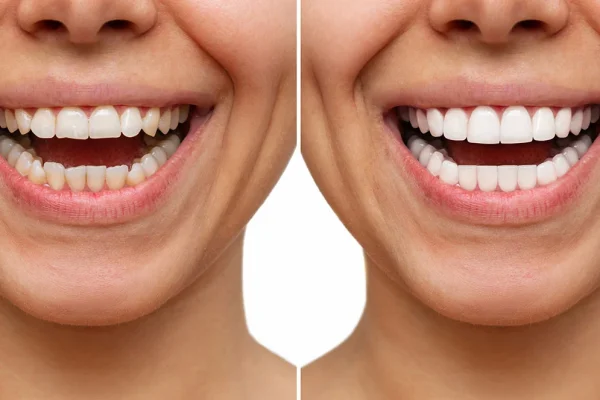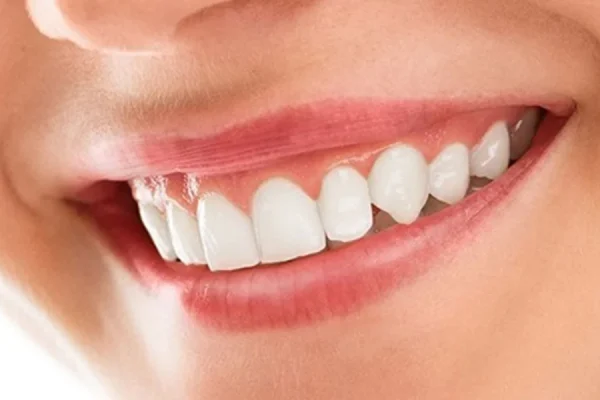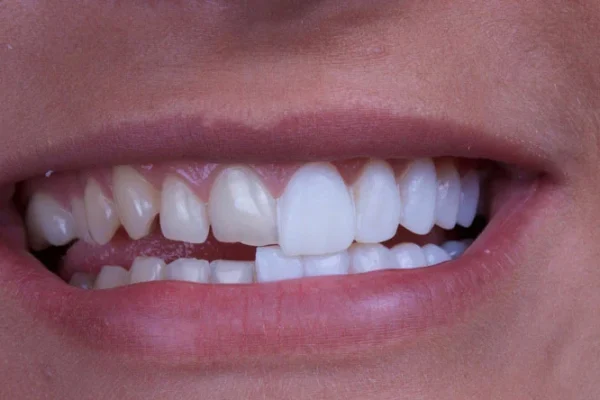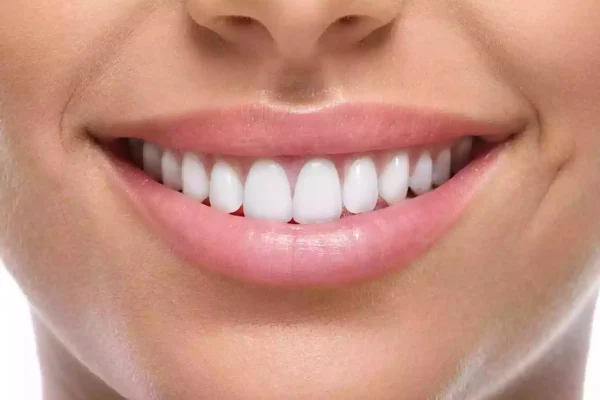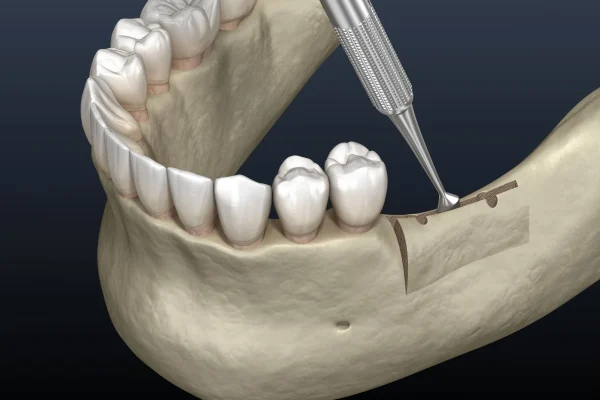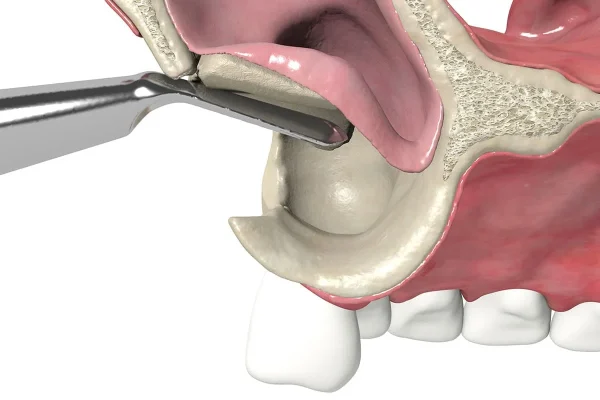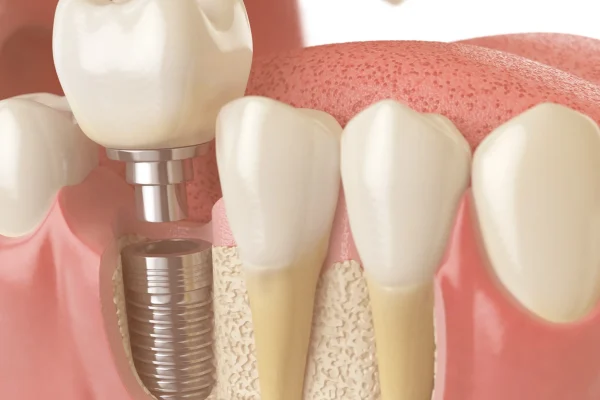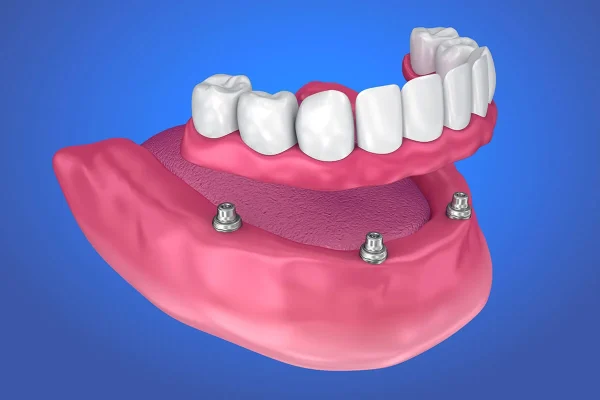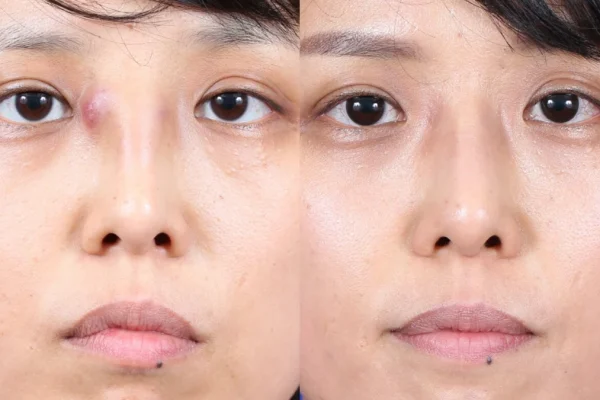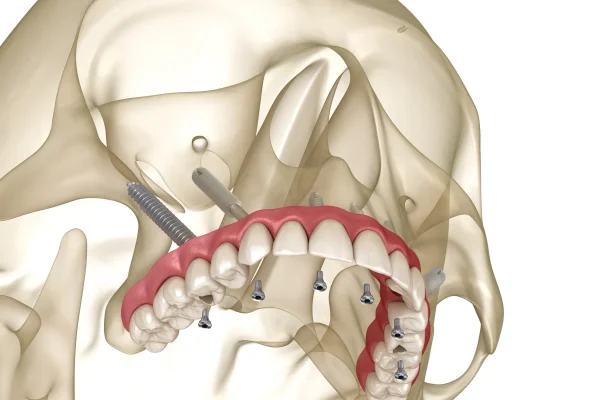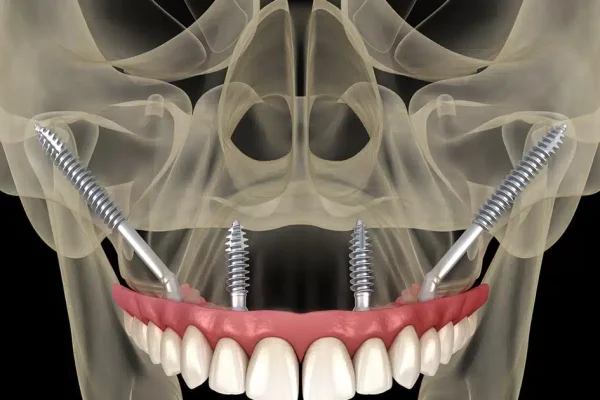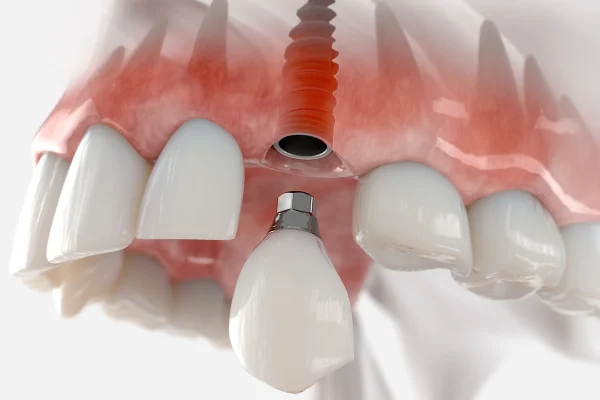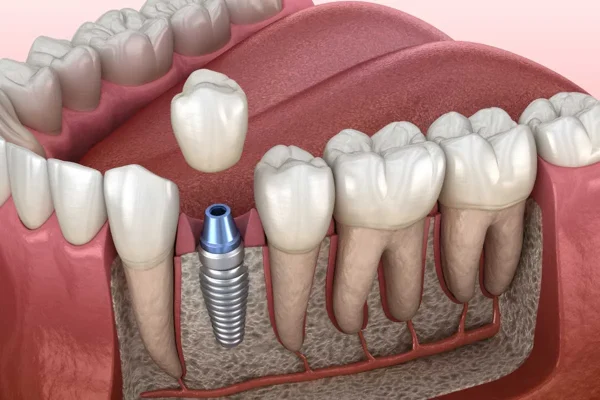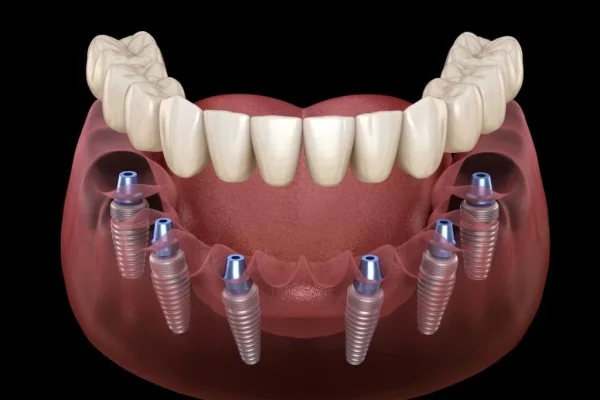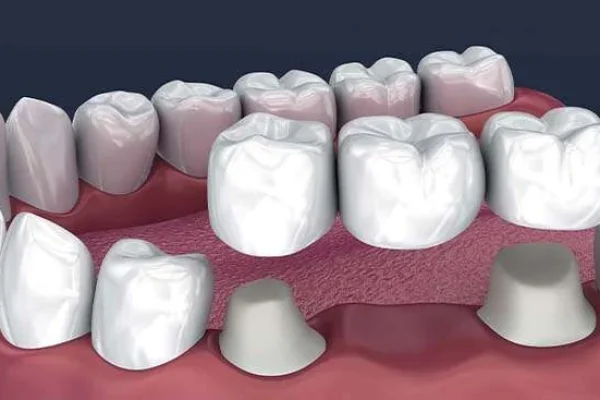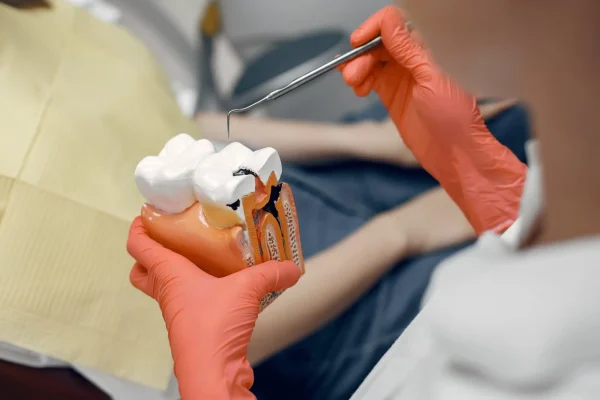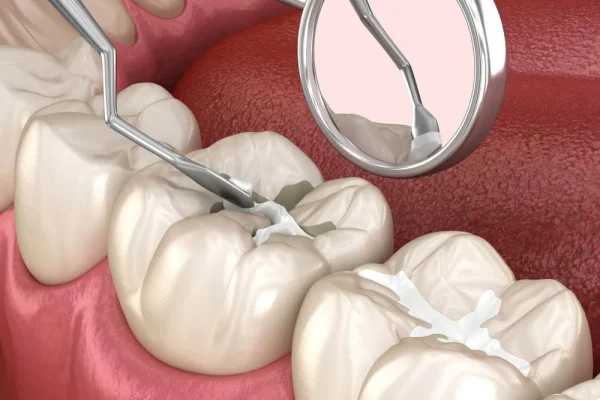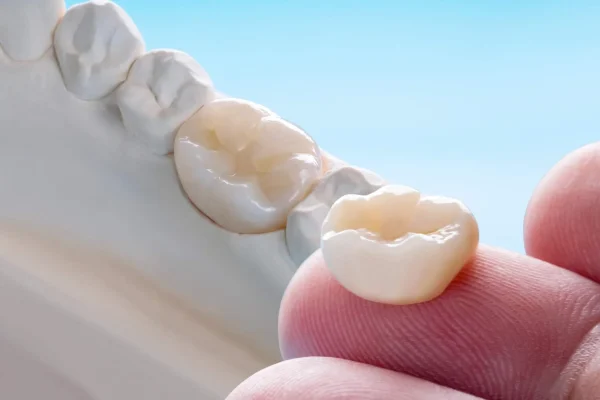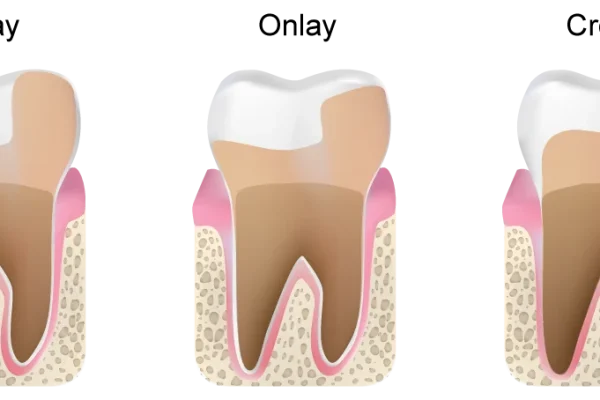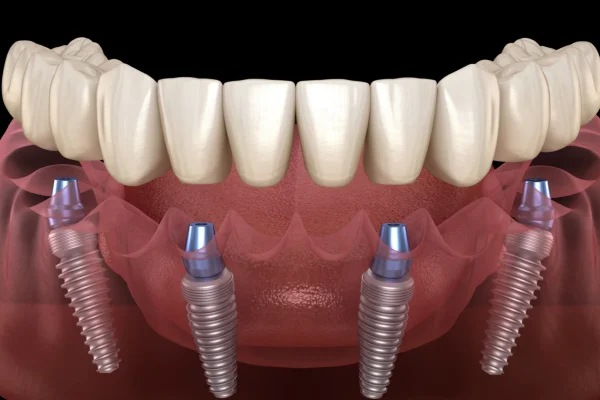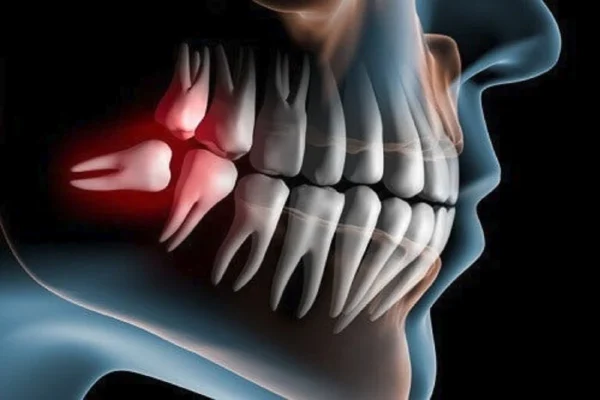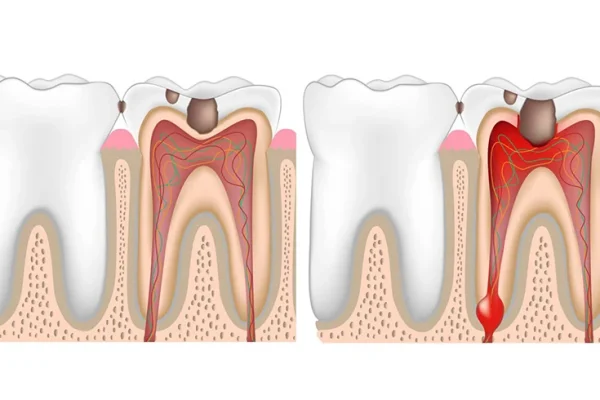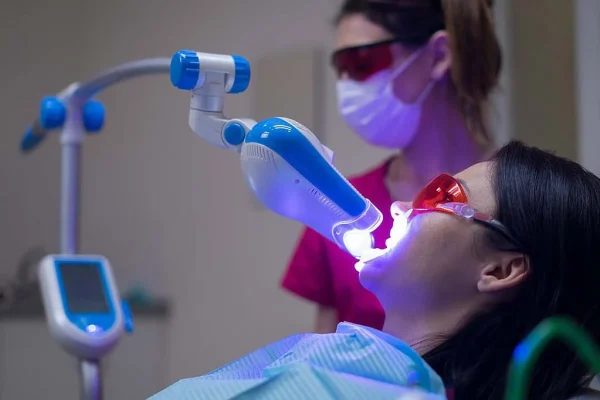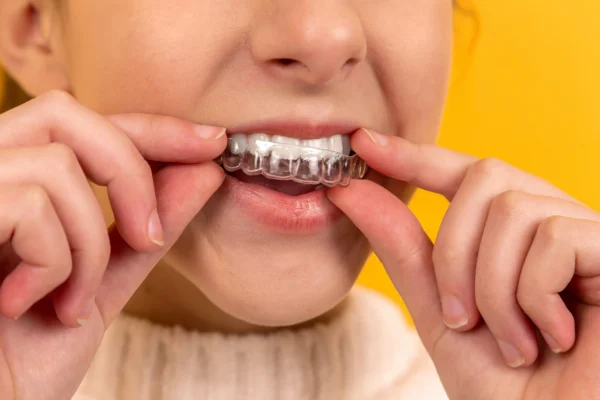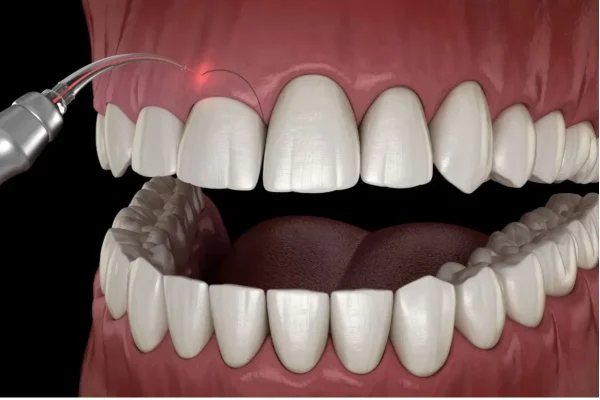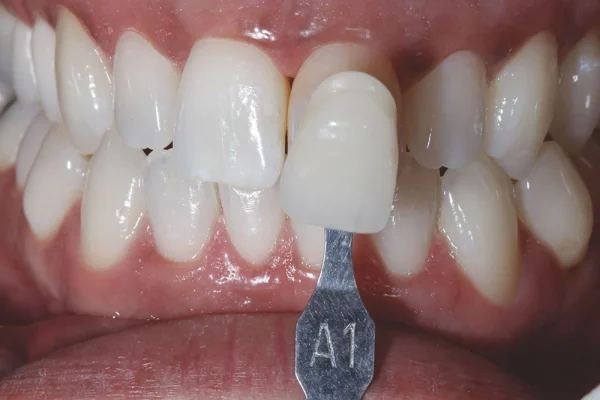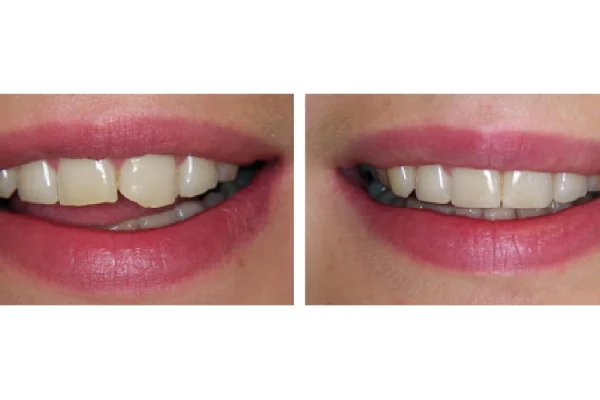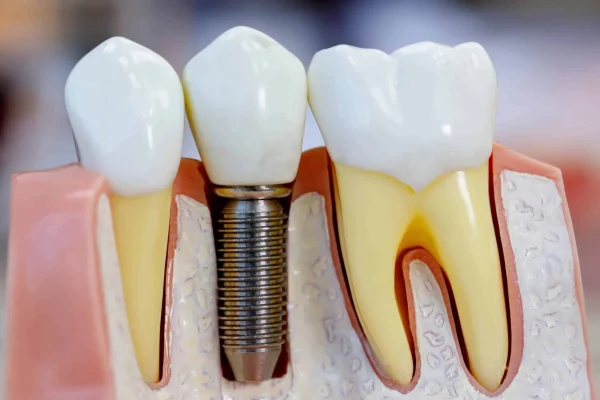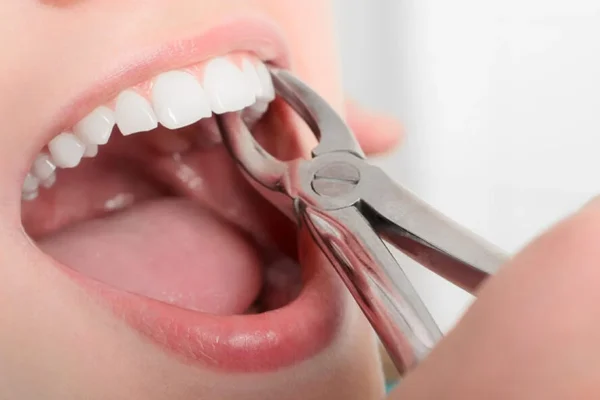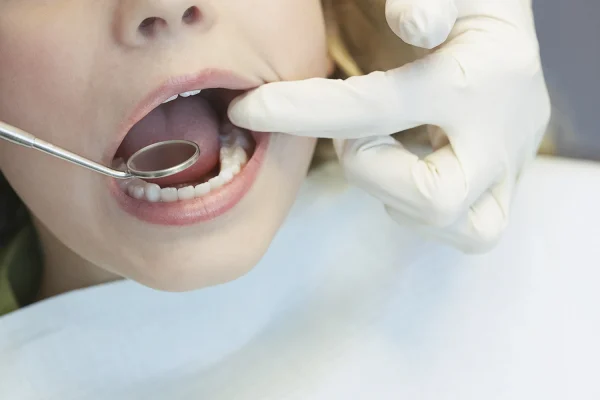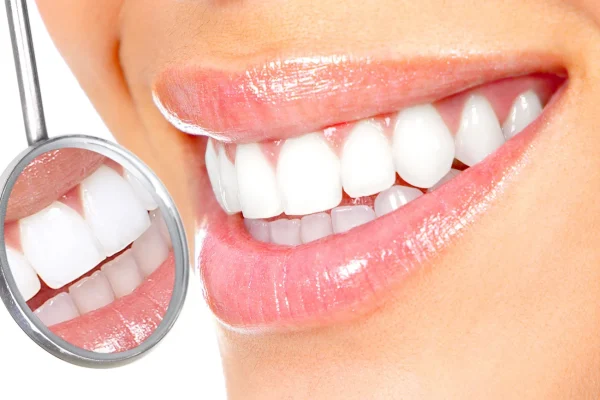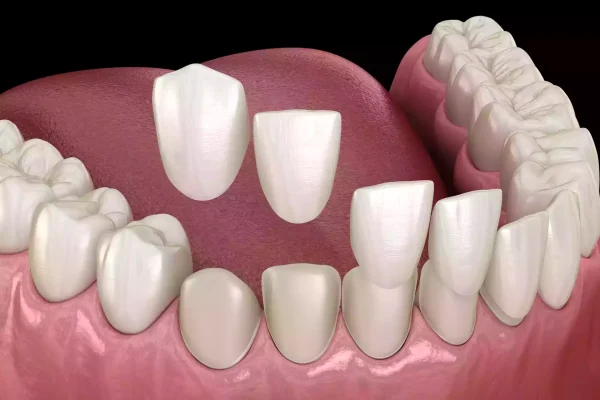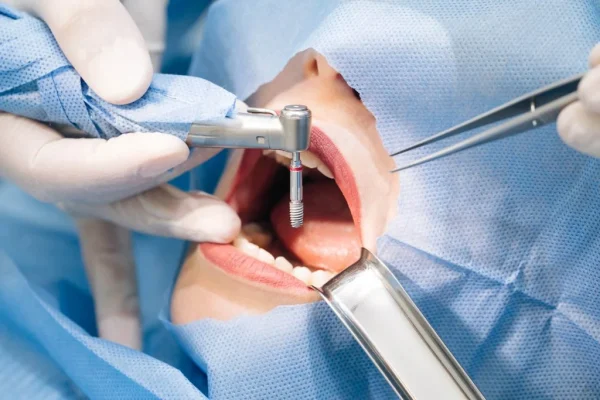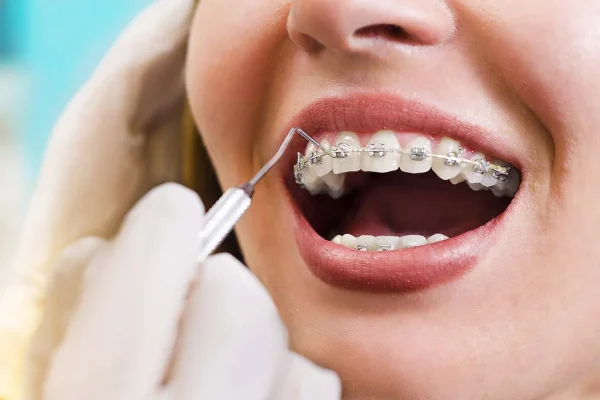What Are Dentures and How Do They Work?

Dentures are custom-made appliances designed to replace missing teeth and restore the natural function of the mouth. Whether you are missing one, several, or all of your teeth, dentures provide a solution that can improve your ability to speak, chew, and smile confidently. There are different types of dentures, and understanding what they are and how they work can help you decide which option is best for you.
What Is the Meaning of Dentures?
Dentures, also known as false teeth, are removable dental devices that replace missing teeth. These appliances are made to resemble natural teeth and gums, and they are crafted to fit comfortably in your mouth. Dentures play a crucial role in restoring not just the aesthetics of your smile, but also your ability to eat and talk. Depending on the number of teeth missing, dentures can be partial (replacing some teeth) or full (replacing an entire set of teeth).
How Do Dentures Work?
Dentures work by filling the gaps left by missing teeth. Full dentures are used when all of the teeth in either the upper or lower jaw are missing, while partial dentures are used when some natural teeth remain. The appliance fits snugly in the mouth and stays in place by relying on the natural suction of the gums, the use of adhesives, or a combination of both. Full dentures are typically made of acrylic resin or a combination of acrylic and metal, whereas partial dentures are often made with a plastic or metal base that attaches to the remaining teeth with clasps. Dentures are designed to mimic the look and feel of real teeth, enabling the wearer to enjoy normal activities like eating, speaking, and smiling without embarrassment.
How Long Do Dentures Last?
Dentures are designed to be durable, but their lifespan can vary depending on several factors, including the type of dentures, how well they are maintained, and the individual’s oral health. Understanding the average lifespan of dentures and what affects their durability can help you ensure that your dentures last as long as possible.
Average Lifespan of Dentures
On average, dentures last between 5 and 10 years. However, this can vary depending on the type of dentures and how well you care for them. Full dentures and partial dentures are both subject to wear and tear over time, and the materials used to make them can affect their longevity. Acrylic dentures, for example, may wear out faster than porcelain or metal dentures.
Factors such as age, diet, and how often the dentures are used can also influence their lifespan. People who wear their dentures frequently and are prone to teeth grinding may notice that their dentures wear down more quickly. Additionally, poor oral hygiene and failure to clean dentures regularly can lead to bacteria buildup, which can shorten the lifespan of dentures.
What Affects the Lifespan of Dentures?
Several factors contribute to how long your dentures last. Here are some of the most important ones to consider:
- Maintenance: Regular cleaning and proper care can help extend the life of your dentures. It’s important to clean your dentures daily using the appropriate denture cleaner, and always remove them before going to bed to prevent unnecessary wear.
- Oral Health: Maintaining good oral health is essential for the longevity of your dentures. If your gums or mouth become irritated, it can affect the fit of your dentures, causing them to wear out more quickly.
- Type of Dentures: Different materials used in dentures can have varying lifespans. For example, porcelain dentures are more durable but can be more expensive. Acrylic dentures, while more affordable, tend to wear out faster.
- Wear and Tear: Over time, dentures may experience natural wear, especially if they are not properly maintained. Biting and chewing food can cause small chips or cracks in the dentures, requiring repairs or replacement.
How Long Can Dentures Last Before Needing to Be Replaced?
While dentures can last for several years, they will eventually need to be replaced. The signs that indicate when your dentures need replacement include:
- Worn-down surfaces: If your dentures begin to show significant wear, such as cracks, chips, or a reduction in comfort, it’s time to replace them.
- Poor fit: As you age, your gums and jawbone can change shape, which can cause your dentures to no longer fit as well. A poor fit can lead to discomfort and difficulty chewing.
- Stains and discoloration: Over time, dentures may become stained or discolored, which can be difficult to fix with cleaning alone. If your dentures no longer look natural, it may be time for new ones.
- Pain and irritation: If your dentures cause irritation, sore spots, or discomfort, it could be an indication that they no longer fit properly and need to be replaced.
How Much Do Dentures Cost?
One of the most common questions people have when considering dentures is how much they cost. The price of dentures can vary significantly depending on several factors, including the type of dentures, the materials used, the dentist’s location, and additional services such as fittings and adjustments. In this section, we will explore the cost breakdown for different types of dentures and what factors affect the overall price.
Cost Breakdown for Different Types of Dentures
The cost of dentures can be categorized based on the type of dentures you need. Here’s a look at the price ranges for the most common types:
- Full Dentures: Full dentures, which replace all the teeth on the top or bottom of your mouth, generally cost between $600 and $3,000 per set, depending on the materials and customization. The more advanced and natural-looking the dentures, the higher the cost.
- Partial Dentures: If you only need to replace a few teeth, partial dentures are the right choice. These dentures can cost anywhere from $500 to $2,500 per arch. The cost varies based on the type of material used, the number of teeth being replaced, and how well they are customized to fit your mouth.
- Implant-Supported Dentures: Implant-supported dentures are a more permanent solution that involves surgically placing dental implants into the jawbone to hold the dentures in place. This option typically costs between $3,000 and $30,000 per arch, as it involves both the cost of dental implants and the denture itself.
What Affects the Cost of Dentures?
Several factors influence the cost of dentures. Here are some of the most important ones:
- Material Quality: Dentures made with high-quality materials, such as porcelain or acrylic, tend to be more expensive than those made from plastic or resin. Porcelain is more durable and looks more natural but can be significantly more expensive.
- Customization: Custom-made dentures are designed to fit your mouth perfectly, providing greater comfort and functionality. Customization adds to the overall cost but is often worth the investment for a better fit and more natural appearance.
- Dental Location: The cost of dentures can vary depending on where you live. In areas with a higher cost of living or more specialized dental care, the price of dentures may be higher.
- Fittings and Adjustments: Fitting your dentures properly requires several appointments, including adjustments to ensure comfort and proper function. The more appointments required, the higher the total cost.
How Much Can I Expect to Pay for a Full Set of Dentures?
The cost for a full set of dentures typically ranges from $1,000 to $3,000 for a basic set, with the potential to increase depending on the material and customizations. High-end full dentures can exceed $4,000 or more for premium materials or additional features like implant-supported dentures.
- Basic Full Dentures: $1,000 to $1,500 per set
- Mid-Range Full Dentures: $1,500 to $2,500 per set
- Premium Full Dentures: $2,500 to $3,000 per set (or more, for specialized options)
This price typically includes the cost of fittings, molds, and any necessary adjustments. Additional costs may arise if you need tooth extractions or bone grafting before the dentures can be placed.
How Much Does a Set of False Teeth Cost?
A set of false teeth, or dentures, can range in cost depending on the type and customization required. As mentioned above, basic dentures can start around $600, with the cost increasing for more durable or aesthetically pleasing options. The total price for a full set of false teeth can range from $1,000 to $3,000 or more. Be sure to discuss payment plans, insurance coverage, and financing options with your dentist to help manage the cost.
- Budget False Teeth: $600 to $1,000 per set
- Mid-Range False Teeth: $1,000 to $2,500 per set
- High-End False Teeth: $2,500 to $3,000 per set
What Are the Different Types of Dentures?

When it comes to replacing missing teeth, dentures offer a versatile and affordable solution. There are several different types of dentures available, each serving different needs and preferences. The main types of dentures include full dentures, partial dentures, and implant-supported dentures. In this section, we will explore each type of denture, discussing their uses, benefits, and when they are appropriate for different patients.
Full Dentures
Full dentures are used to replace an entire set of missing teeth on the top or bottom of your mouth. They are ideal for people who have lost most or all of their teeth. Full dentures are typically made from acrylic, porcelain, or a combination of materials, and they rest on top of the gums. Full dentures are removable and provide an affordable solution for tooth replacement.
- When Are Full Dentures Used?: Full dentures are best for patients who have lost all their natural teeth in either the upper or lower jaw. This can happen due to age, tooth decay, injury, or other dental health conditions.
- How Do Full Dentures Stay in Place?: Full dentures are held in place by natural suction against the gums, and they may also be secured with a denture adhesive for added stability. Some patients may also opt for implant-supported full dentures for a more secure fit.
Partial Dentures
Partial dentures are used when only a few teeth are missing. Unlike full dentures, partial dentures are designed to fit around your remaining natural teeth, filling in the gaps with artificial teeth. Partial dentures are typically attached to a metal framework, making them durable and stable. They are removable, allowing for easy cleaning and maintenance.
- When Are Partial Dentures Used?: Partial dentures are ideal for patients who still have some of their natural teeth intact and need to replace a few missing teeth. They can restore both functionality and aesthetics.
- How Do Partial Dentures Work?: Partial dentures use clasps or other retention systems to attach to your remaining natural teeth, ensuring that they stay in place. They can be removed for cleaning, unlike full dentures.
Implant-Supported Dentures
Implant-supported dentures offer a more permanent and stable solution than traditional removable dentures. These dentures are anchored into the jawbone using dental implants, which are titanium posts that serve as artificial tooth roots. Implant-supported dentures can be full or partial and offer a more natural feel and function, similar to natural teeth.
- What Are Implant-Supported Dentures?: Implant-supported dentures are fixed to dental implants that are surgically placed into the jawbone. This provides more stability than traditional dentures, which rely on suction or adhesive.
- Benefits of Implant-Supported Dentures: They offer greater comfort, improved chewing ability, and a more secure fit compared to removable dentures. They also help preserve bone structure by stimulating the jawbone, reducing bone loss over time.
- When Are Implant-Supported Dentures Used?: Implant-supported dentures are typically recommended for patients who have lost a significant number of teeth and have adequate jawbone density to support dental implants. This solution is ideal for those looking for a permanent option with minimal maintenance.
How to Get Dentures: The Process
Getting dentures is a multi-step process that involves careful planning, professional dental assessments, and a few appointments to ensure a perfect fit. Whether you are getting full dentures, partial dentures, or implant-supported dentures, understanding the steps involved will help you prepare for the procedure and understand the timeline.
Steps to Getting Dentures
The process of getting dentures typically spans several weeks, depending on the type of dentures you need and the health of your gums and jaw. Below are the main steps involved in getting dentures:
- Initial Consultation and Assessment: The first step is to schedule a consultation with your dentist. During this visit, your dentist will perform an oral exam, evaluate your gum health, and take X-rays or impressions of your mouth. This helps the dentist determine whether you need extractions or other treatments before moving forward with dentures.
- Tooth Extractions (if necessary): If you still have any damaged or decayed teeth that need to be removed, your dentist will extract them. The gums will need some time to heal after tooth extractions before dentures can be placed. In some cases, temporary dentures may be provided during this healing phase.
- Impressions and Measurements: Once your gums have healed, your dentist will take precise impressions of your mouth. These impressions will be used to create a model of your mouth, which will guide the fabrication of your dentures. This step is crucial for ensuring that your dentures fit perfectly and feel comfortable.
- Creating the Dentures: After the impressions are taken, your dentures will be custom-made in a dental lab. The lab will use the impressions to design the dentures based on your mouth’s size and shape. You will have the option to discuss the materials used, the color of the dentures, and any adjustments to ensure they match your preferences.
- Fitting the Dentures: Once your custom dentures are ready, you will return to your dentist’s office for the fitting. The dentist will place the dentures in your mouth and make any necessary adjustments to ensure they fit comfortably. You may need to try your dentures on a few times to make small tweaks to the fit.
- Final Adjustments and Follow-up: After wearing your dentures for a few weeks, you may need a follow-up visit for further adjustments. It’s important to check that the dentures are still fitting well and that you are comfortable with them. Your dentist will guide you on how to care for your dentures and ensure they remain in good condition.
Pre-Procedure Preparation
Before getting dentures, there are a few important things you can do to prepare:
- Dental Extractions: If you need tooth extractions before your dentures can be made, make sure to follow your dentist’s post-extraction instructions carefully. This will help your gums heal properly and ensure you’re ready for your dentures.
- Bone Grafting (if necessary): In some cases, you may need a bone graft if your jawbone has deteriorated due to missing teeth. This process adds volume to your jawbone, making it stronger and better able to support the implants if you opt for implant-supported dentures.
- Choose Your Denture Type: Work with your dentist to choose the best type of dentures for your needs. Whether it’s full dentures, partial dentures, or implant-supported dentures, your dentist will help guide you through the decision process based on your oral health, budget, and preferences.
Caring for Your Dentures
Proper care and maintenance of your dentures are crucial for ensuring their longevity and keeping them in optimal condition. Regular cleaning, good oral hygiene practices, and routine check-ups with your dentist are essential for maintaining the health of your dentures and your gums.
Maintenance Tips
To keep your dentures in excellent condition and maximize their lifespan, follow these essential maintenance tips:
- Clean Your Dentures Daily: Just like your natural teeth, dentures need to be cleaned daily to remove food particles, plaque, and bacteria. Use a soft-bristled toothbrush and non-abrasive denture cleaner to gently scrub the surface of your dentures. Avoid using regular toothpaste, as it can be too harsh and cause scratches that can harbor bacteria.
- Soak Dentures Overnight: When not in use, dentures should be soaked in a denture cleanser or water overnight to keep them moist and prevent them from drying out or warping. Do not soak dentures in hot water, as this can distort their shape.
- Rinse After Eating: After every meal, it’s important to remove your dentures and rinse them under lukewarm water to remove any food debris. This helps keep them clean and prevents stains and odors from developing.
- Brush Your Gums and Tongue: Even though you’re wearing dentures, it’s still important to brush your gums, tongue, and the roof of your mouth to remove bacteria and stimulate blood circulation. This will help keep your mouth healthy and fresh.
- Keep Your Dentures Safe: When you’re not wearing your dentures, store them in a safe place to avoid damage. Use a denture case to prevent them from being dropped or misplaced. Be careful not to bend or break your dentures by handling them too roughly.
- Regular Dental Check-ups: Schedule regular check-ups with your dentist to ensure your dentures are still fitting properly and that your gums are healthy. Dentures can change shape over time, and your dentist may need to make adjustments or replace worn-out dentures.
What Should You Avoid Doing With Dentures?
While dentures require care, there are also things you should avoid to ensure they last as long as possible. Some common mistakes to avoid include:
- Using Hot Water: Never use hot or boiling water to clean your dentures, as this can cause them to warp and lose their shape.
- Using Abrasive Cleaners: Harsh chemicals or abrasive cleaners can scratch the surface of your dentures, making them more susceptible to staining and bacteria buildup.
- Leaving Dentures Out Too Long: It’s important to keep your dentures moist when they’re not in your mouth. Leaving them out too long can cause them to dry out, crack, or lose their shape.
- Chewing Hard or Sticky Foods: Dentures are not as durable as natural teeth, so it’s important to avoid hard, sticky, or tough foods that can damage them. Sticky foods can also cause your dentures to slip out of place.
- Ignoring Small Problems: If you experience any discomfort, pain, or difficulty fitting your dentures, don’t wait to address it. See your dentist right away to prevent the problem from getting worse.
How to Clean and Care for Your Dentures?
Proper cleaning and care will help keep your dentures looking and functioning like new:
- Daily Brushing: Brush your dentures twice a day using a soft toothbrush specifically designed for dentures. Use a denture paste or non-abrasive cleaner to remove stains and plaque.
- Soaking Overnight: Soak your dentures in a denture solution or water overnight to maintain their moisture. This prevents them from drying out and helps preserve their shape.
- Rinse After Eating: Always remove your dentures and rinse them with warm water after meals to remove food particles and reduce the risk of bacteria buildup.
- Avoid Using Hot Water: As mentioned earlier, avoid using hot water to clean your dentures as it can warp and damage them. Stick to lukewarm water for cleaning.
- Regular Denture Check-ups: Visit your dentist regularly for check-ups. Your dentist can identify any early signs of damage or wear and ensure that your dentures continue to fit comfortably.
Frequently Asked Questions About Dentures

This section addresses some of the most common questions people have about dentures, including their lifespan, cost, and the process of getting them. Understanding these aspects can help you make informed decisions about dentures and ensure you’re prepared for the process of replacing missing teeth.
How Long Do Dentures Last Before Requiring Replacement?
One of the most frequently asked questions about dentures is how long they last before they need to be replaced. While the lifespan of dentures depends on various factors, including how well they are cared for, the average duration is typically between 5 to 10 years. However, certain factors can impact the longevity of your dentures:
- Wear and Tear: Over time, dentures may wear down from regular use. Eating, chewing, and even talking can cause gradual wear on the surface of your dentures, affecting their fit and appearance.
- Changes in Your Mouth: Your gums and bone structure can change over time, which may cause dentures to loosen or become ill-fitting. This is why regular visits to your dentist are important for adjusting the dentures to ensure they continue to fit well.
- Maintenance: Proper care and regular cleaning can extend the life of your dentures. Failing to follow the recommended care routine can result in staining, damage, or a decrease in their durability.
- Type of Dentures: The type of dentures you choose can also affect how long they last. For example, implant-supported dentures tend to be more durable than traditional full or partial dentures because they are anchored securely to the jawbone.
In some cases, your dentist may recommend replacing your dentures after several years if they no longer fit well or show signs of significant wear.
How Much Do Dentures Typically Cost?
The cost of dentures can vary significantly depending on the type of dentures, the materials used, and the region where you receive treatment. On average, the cost of a full set of traditional dentures ranges from $600 to $2,500. However, here are some factors that can influence the cost:
- Type of Dentures: Full dentures are usually more expensive than partial dentures. Implant-supported dentures are the most expensive option but provide enhanced stability and function.
- Material Quality: High-quality materials, such as porcelain, are more expensive but offer a more natural appearance and better durability. Lower-cost materials like acrylic may be more affordable but may not last as long.
- Customization: Customized dentures, which are designed to fit the unique shape and structure of your mouth, tend to cost more than stock dentures that are mass-produced.
- Additional Costs: In addition to the cost of the dentures themselves, you may need to account for other expenses, such as consultations, fittings, adjustments, and any necessary dental procedures (e.g., extractions, bone grafts).
It’s important to discuss your budget and needs with your dentist to determine the most appropriate and affordable option for you.

